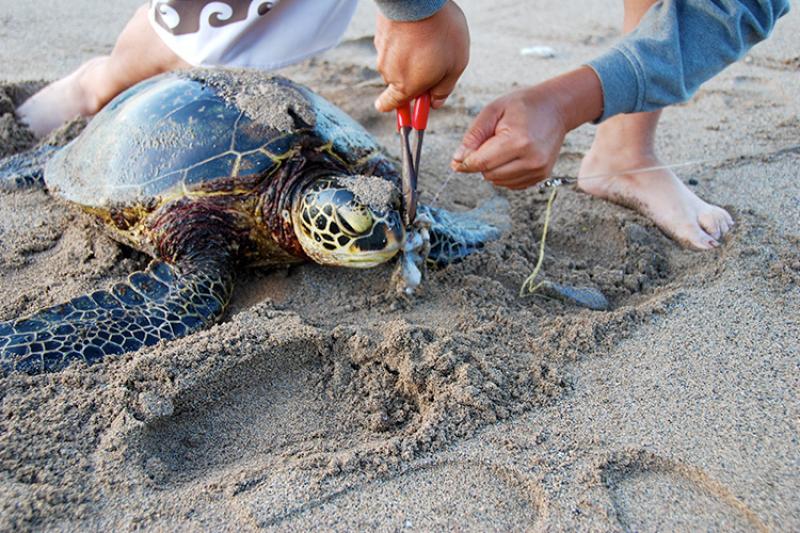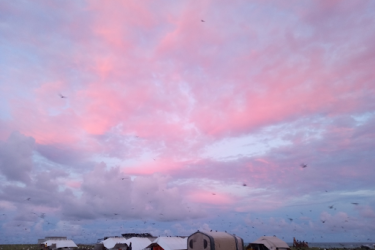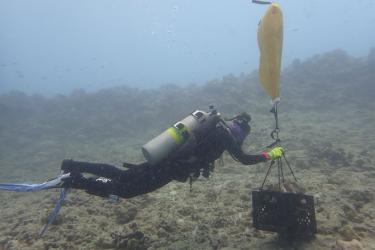The word “fast” isn’t one you’d normally associate with turtles. But here in the Pacific Islands region, FAST means Fishing Around Sea Turtles or, more broadly, Fishing Around Seals and Turtles. It’s our program to promote coexistence between our local fishing communities and marine wildlife, particularly the islands’ amazing-from-afar protected species, such as green sea turtles (honu) and Hawaiian monk seals.
“Fishers are some of our best partners in conservation,” said Irene Kelly, sea turtle recovery coordinator for the NOAA Fisheries Pacific Islands Regional Office. “They have a lot of deep knowledge about our marine resources and fishing. They don’t want to accidentally hook a turtle or a seal.”
But how can you avoid catching a turtle while fishing? Fortunately, there are several actions— suggested by fishermen—that you can take to help prevent snagging a turtle. It starts with knowing a bit about turtles’ eating behavior.
Honu are the only herbivorous species of sea turtles—they feed mainly on algae and seagrass, primarily during the day. But they may develop an acquired taste for dead fish or squid if they are exposed to these items. It’s important to refrain from tossing old bait or fish scraps into the water.
Fishing with live bait between sunset and sunrise and keeping your bait and discarded fish scraps away from turtles can help make your fishing activity less enticing. Check your bait often, and relocate your gear away from curious turtles.
These steps can help prevent an accidental hooking a turtle, but line entanglement is the greatest problem for turtles.
“The line, not the hook, is the most damaging and deadly to turtles,” Kelly said, explaining that fishing line can hurt and kill sea turtles in several ways, such as by strangulation, flipper amputation, and drowning. “We’ve seen this firsthand far too many times.”
Keep a close eye on your gear while fishing, especially in areas where turtles are present. And always make sure to recycle or dispose of gear and lines responsibly. NOAA has been working with partners throughout the state to install fishing line recycling bins at popular fishing spots. Currently, there are bins throughout Maui and a handful of them on Oʻahu, with plans to install many more bins over time.
One type of gear we’ve seen over the past few years that is a major threat to sea turtles is fishing with braided lines, often used with drones. These lines are very strong and can entangle an animal quickly!
“We would save many sea turtles and significantly reduce flipper amputation surgeries if fishermen would avoid using braided lines,” Kelly said.
Of course, accidents can still happen, even with these precautions. If you hook a turtle or seal, don’t panic!
The first step for helping both turtles and seals is calling our NOAA Marine Wildlife Hotline at (888) 256-9840.
For seals, time is key. The sooner a report is received the faster NOAA can initiate search and rescue operations for a hopefully positive outcome.
For sea turtles, there are some steps you can take to help minimize how much gear is left on an animal to help save its life. It’s OK to help by reeling in the animal to cut the line as close to the hook as possible before releasing the turtle. But remember, your safety comes first.
Let’s all fish responsibly—our honu and seals thank you!




